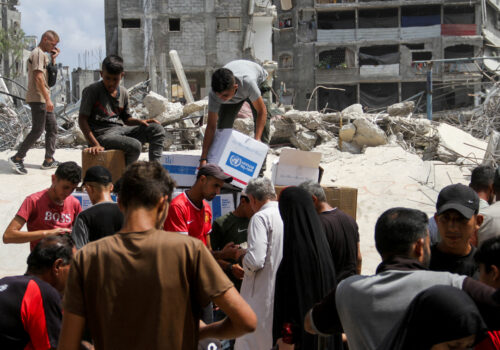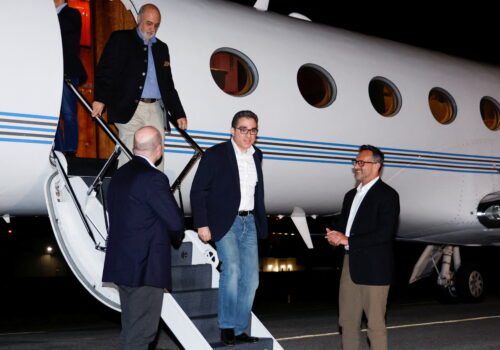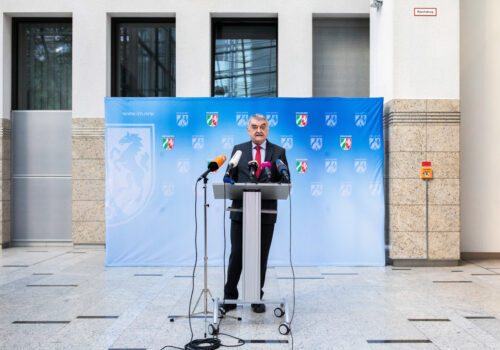Managing counterterrorism foreign liaison relationships in an increasingly competitive world
For the US intelligence community (IC), working with foreign liaison services primarily through Central Intelligence Agency (CIA) stations overseas and resourced as a core national security priority, has been a decisive cornerstone of strategic counterterrorism successes that followed the terrorist attacks of September 11, 2001. These successes have taken the form of disrupting terrorist plotting against the US homeland and allies. It has allowed the fight to be taken directly to terrorist networks and resulted in the removal of key leaders and operatives from the global battlefield. For over two decades, these counterterrorism foreign liaison relationships, developed and primarily nurtured by CIA officers and assisted by numerous IC agencies, have contributed significantly to disrupting countless attacks and saving countless lives globally. However, developing, maintaining, and enabling these relationships has often been a misunderstood and underappreciated facet of counterterrorism strategy. These partnerships are of even greater importance in a time of great power competition, when counterterrorism has been reduced relative to Russia’s invasion of Ukraine and China’s threats against Taiwan.
SIGN UP FOR THIS WEEK IN THE MIDEAST NEWSLETTER
While working with foreign liaison services, it is essential to note that the CIA also partners closely with other US intelligence community agencies and/or US Special Operations Forces in supporting them. This brings a far more holistic and comprehensive approach to foreign partnerships and typically occurs with the US’ most valued intelligence relationships. Such efforts result in some of the US government’s highest-impact intelligence successes, often against its most critical adversaries. According to a 2022 Politico article, the CIA, National Security Agency (NSA), Federal Bureau of Intelligence (FBI), British counterparts, and Pakistan’s Inter-Services Intelligence Directorate (ISI) all reportedly worked together in 2006 to disrupt an al-Qaeda airliner plot where UK-based operatives, directed by al-Qaeda leadership hiding in Pakistan, were attempting to smuggle peroxide-based liquid explosives onto multiple planes simultaneously, and then planning to detonate them mid-flight. The disruption of this plot, through arrests in Pakistan and the United Kingdom, prevented a catastrophic attack. Separately, though not specifically related to counterterrorism, a 2012 New York Times article reported that the CIA, NSA, US Cyber Command, and Israeli intelligence agency Mossad all collaborated to sabotage Iran’s nuclear enrichment program, reportedly delaying the country’s nuclear ambitions while avoiding the direct consequences of military strikes, which could have risked a regional war. While reportedly a successful joint effort, it was also reported that the targeted malware used in the operation accidentally spread beyond the intended target, infecting systems worldwide.
As these examples demonstrate, robust investment in foreign liaison relationships enables the fundamental conditions required for an effective global counterterrorism strategy, and not just within the countries where these partnerships are enabled. Here, “robust investment” includes an array of opportunities. First, the forward deployment of a sufficient number of subject matter operational and analytic counterterrorism experts in every country with a terrorist presence, with language fluency where required. Second, using every inch of US authority to share critical intelligence with liaison partners, with an emphasis on transparency given the compatibility of the underlying content, while encouraging liaison to share back with the same bias in favor of robust sharing. Third, aggressively resourcing training courses for liaison to continuously improve their capabilities against an evolving threat landscape, with the opportunity to learn from local experts as well on the latest enemy tactics observed. Finally, funding and/or acquisition of the appropriate equipment for partner units to be as effective as possible for the threats they face.
These investments enable a range of fundamental conditions that are required for an effective global counterterrorism strategy and also provide several secondary and even intangible critical benefits that would otherwise be unavailable in their absence. First and foremost, these investments provide a consistent seat at the foreign liaison decision table. There is simply no substitute for this in counterterrorism work, as this seat is “skin in the game” and the genesis of every other opportunity that follows. It is here where robust two-way intelligence sharing is made possible, as well as exchanges of threat assessments and terrorist order of battle assessments, and training/capacity-building measures. These actions move relationships from “nice to have” status to “essential” for both sides. Through these investments and the partnerships themselves, the US is also able to maintain the closest proximity to terrorist strongholds. In whatever form this takes within a country, there is no substitute for having all forms of intelligence collection as close as possible to the problem and, where possible, always reducing the enemy’s safe haven.
Additionally, when these investments are maximized, it allows the US to plug this foreign liaison relationship into a more effective transnational counterterrorism network community of interest to better go after ongoing transnational threats. Furthermore, through close partnership with foreign liaison services as described above, the US is also in the best possible position to monitor behaviors, both those observed and those learned about by other means, to ensure these behaviors are in line with the US and its partners’ laws, policies, and values. Such crucial insights allow the US to ensure proper accountability and continuous improvement for its partners’ culture and practices. Finally, in those rare instances requiring a unilateral US action to solve a problem, all of the parameters above, when enabled to the fullest, put policymakers in the best possible position to know when to make such a call.
When these investments are made through intelligence channels, they build valuable goodwill with the partner country outside the public eye. This is particularly important in countries where the United States is not viewed favorably. Counterterrorism work is perhaps the most compatible subject across virtually all of the countries of the world. And while that is a sad reality owing to the ubiquitous state of the global terrorist threat, it is also an opportunity. In limited places, it is the US’ only channel for engagement, which can be used for other critical needs in limited instances. Relatedly, great power competition adversaries would rather not see the United States be successful in many countries with the most entrenched terrorist threats and will actively work to undermine the US in these regions. Robust, productive, successful, and indeed necessary foreign liaison relationships are much harder to disrupt. And those partners are much more likely to share intelligence regarding attempts at such disruption, thereby improving the US’ overall counterintelligence posture when done right.
The United States must embrace this challenge of counterterrorism foreign liaison relationships as it manages national security priorities in a resource-constrained environment. Withdrawing from commitments is the wrong message to send, and adversaries will fill the gaps if the US leaves. If anything, in an age of great power competition, the United States needs to double down on liaison relationships that focus on counterterrorism. And doubling down here means being there, in appropriate numbers, cultivating deep counterterrorism and foreign liaison expertise, with language skills as needed, as the US is positioning itself against great power competition adversaries. In fact, such efforts will be mutually enabling.
What can history teach the United States? For one, foreign liaison partners are not perfect, and there are a wide range of categories of effectiveness. There are crown jewel liaison partnerships that have consistently mattered. Some relationships are messy, with human rights issues complicating valuable cooperative efforts. Some relationships show wildly mixed results over time. Some attempts fail, while others can be highly controversial. George Tenet said about the CIA, “We do hard stuff.” In this context, that means working with sometimes capable and willing but often imperfect partners who periodically cause policy and legal challenges for the United States. The reality is that these challenges are also, in part, derivative of imperfect US policies, derivative from the US’ past policy failures, and derivative from times when it failed to live up to its promises. Despite episodic policy and legal challenges, the legal framework for leveraging foreign liaison, of course, matters. The United States does not necessarily need any new authorities in 2024, as it can and must use the existing ones that have remained in place since September 11 to meet its needs. Partnerships can be messy to include in both directions, but they absolutely are required to keep the American people safe. That should be what drives the United States beyond 2024.
Marc Polymeropoulos is a nonresident senior fellow at the Atlantic Council. He worked for twenty-six years at the Central Intelligence Agency (CIA) before retiring in 2019 at the senior intelligence service level.
Edward Bogan is a retired CIA Operations Officer with twenty-four years of experience in national security and intelligence operations and policy.
James Petrila is an adjunct professor of law at George Washington University School of Law. He previously had a thirty-year career as a lawyer at the National Security Agency and the Central Intelligence Agency.
Further reading
Thu, Oct 24, 2024
Tragic death of aid worker underscores Gaza’s postwar challenge
MENASource By
The international community has long been criticized for its inaction as Hamas gradually tightened its control over NGOs and civil institutions.
Wed, Oct 23, 2024
Balancing a culture of secrecy and collaboration: Information sharing with hostage families
MENASource By
US policies enshrine a requirement for intelligence sharing between the US government and hostage families.
Thu, Oct 10, 2024
From Dushanbe to Berlin: The emerging ISIS-K threat
MENASource By
Addressing some of these systemic issues may reduce ISIS-K’s ability to recruit from Tajikistan and ultimately decrease the group’s ability to conduct external operations.
Image: People inspect the damage in a house following a raid by the US-led International Coalition in the town of Atmeh. At least 13 people, including four children, were killed in the counterterrorism operation mounted early Thursday by US special forces. via Reuters


